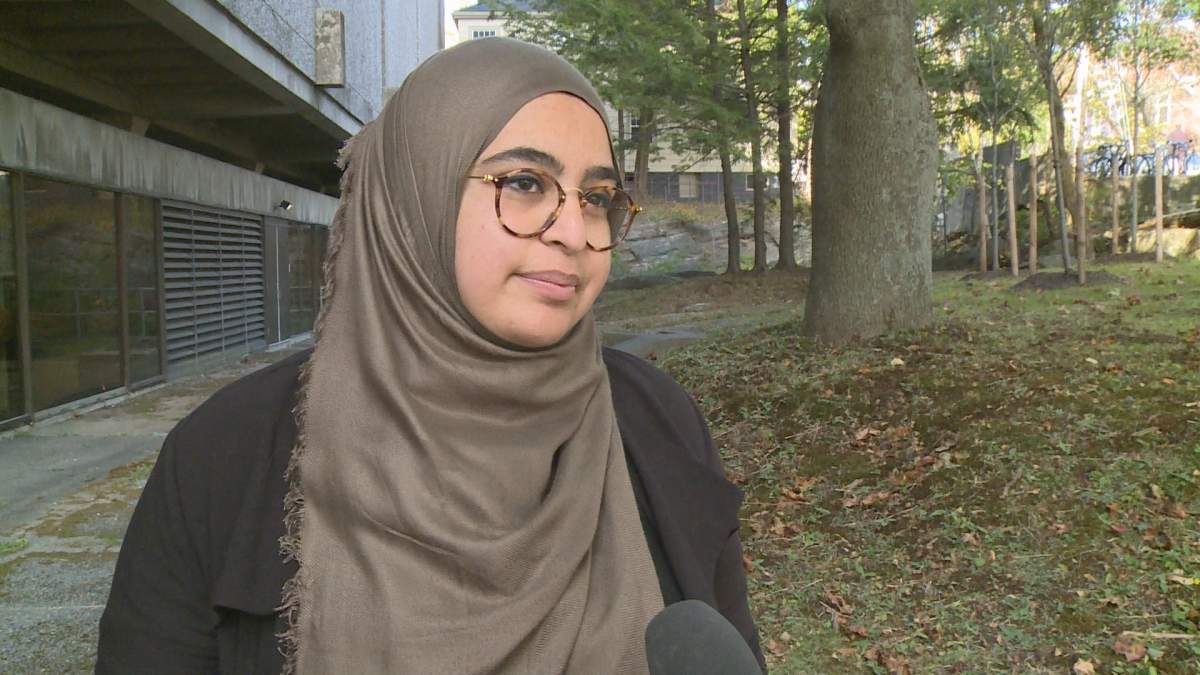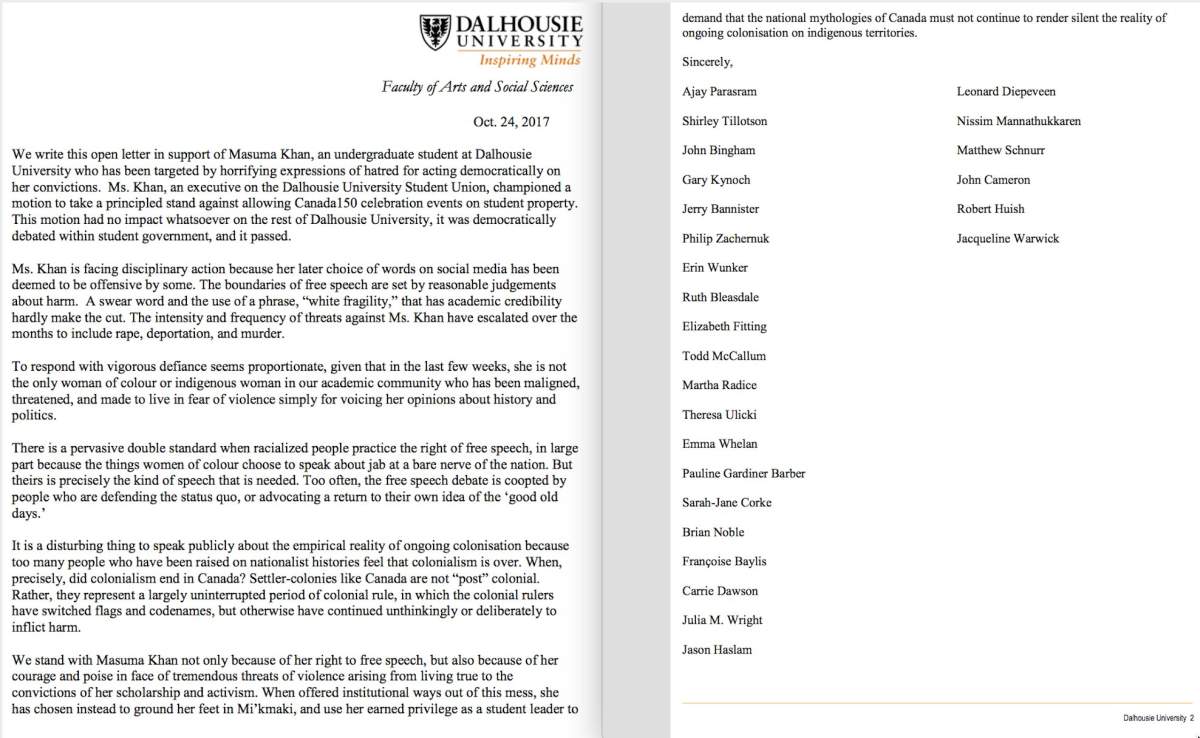More Dalhousie University professors have come out in support of Masuma Khan, an undergraduate student involved in a conduct dispute between herself and Dalhousie’s Senate Discipline Committee.

An open letter, published on Tuesday and signed by 26 professors in the school’s faculty of arts and social sciences, condemns the schools “double standard” on free speech.
“The boundaries of free speech are set by reasonable judgments about harm,” the letter reads.
“A swear word and the use of a phrase, ‘white fragility,’ that has academic credibility hardly make the cut.”
READ MORE: Indigenous board member accuses Dalhousie University of ‘entrenched’ racism
The letter also argues against the threats made against Khan, which include “rape, deportation and murder.”
Khan, vice-president Academic and External for the Dalhousie Student Union (DSU), is under investigation for a Facebook post she wrote addressing backlash against the student union’s decision to not celebrate Canada 150.
The student’s original post, which has since been deleted, cited her refusal to stand with “privileged white people” celebrating “over 400 years of genocide.”
Support from across Canada

Get breaking National news
This new letter comes only a day after a group of 25 employees from Dalhousie’s Schulich School of Law signed a similar missive.
It called on Dr. Kevin Hewitt, the Chair of the Dalhousie Senate, and the Senate as a whole, to allow an environment in which “political speech can flourish.”
Unlike the letter released Tuesday, the letter from the faculty of law did not mention Khan or a specific incident.
Instead, it pushed for the Dalhousie Senate to not act as police and censor the school’s political speech.
WATCH: Dalhousie student receives threats, national support in Canada 150 dispute with university

The Ontario Civil Liberties Association has also come out in support of Masuma Khan, saying in a letter to Dalhousie president Richard Florizone that the university is using its disciplinary powers to suppress freedom of speech.
The civil liberties group says social media posts are a form of public speech in the so-called digital public square.
“We believe that universities have no business interfering with the conduct of its students at such public off-campus venues,” he said.
“The legitimate desire for a functional learning environment ought not to be used as a smokescreen to stifle political debate and silence dissent.”
Administration’s response
Arig al Shaibah, Dalhousie’s vice-provost of student affairs, said in a statement that the university’s code of conduct allows students to raise concerns about behaviour they feel negatively impacts their learning environment and experience.
“With complaints of this nature, we engage in efforts to resolve issues through informal, educational and conversational means,” she said last week. “If individuals involved are not agreeable to informal means to resolve matters, the code dictates that the matter must be referred to the Senate Discipline Committee for a hearing.”
— With files from the Canadian Press
- Canadian immigration officers investigating hundreds identified by extortion task force
- Ottawa expects Ukrainian emergency visa holders to return after war ends
- As new EV rebate program starts, car dealers still seek past reimbursements
- China drops visa requirement for Canadian tourists, business visitors









Comments
Want to discuss? Please read our Commenting Policy first.